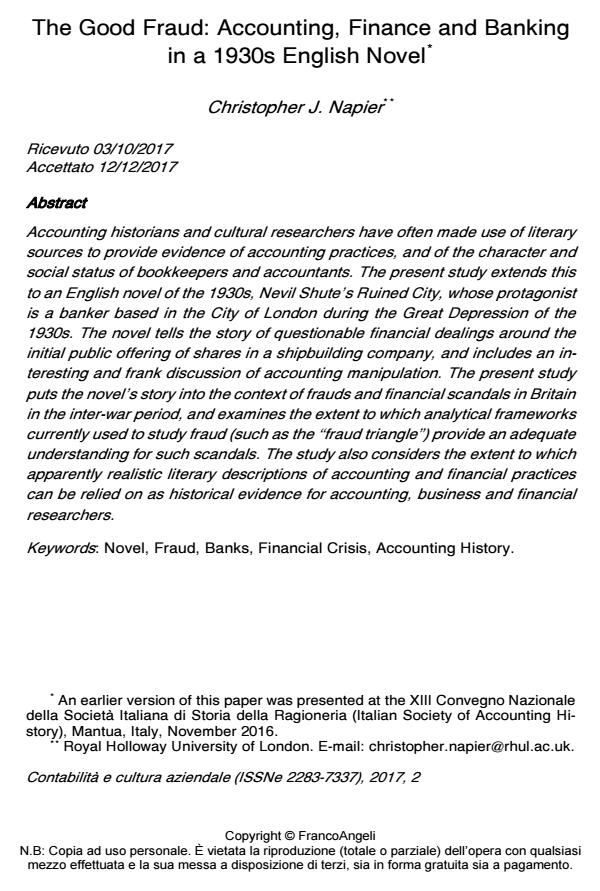The Good Fraud: Accounting, Finance and Banking in a 1930s English Novel
Journal title CONTABILITÀ E CULTURA AZIENDALE
Author/s Christopher J. Napier
Publishing Year 2017 Issue 2017/2
Language English Pages 28 P. 43-70 File size 161 KB
DOI 10.3280/CCA2017-002003
DOI is like a bar code for intellectual property: to have more infomation
click here
Below, you can see the article first page
If you want to buy this article in PDF format, you can do it, following the instructions to buy download credits

FrancoAngeli is member of Publishers International Linking Association, Inc (PILA), a not-for-profit association which run the CrossRef service enabling links to and from online scholarly content.
Accounting historians and cultural researchers have often made use of literary sources to provide evidence of accounting practices, and of the character and social status of bookkeepers and accountants. The present study extends this to an English novel of the 1930s, Nevil Shute’s Ruined City, whose protagonist is a banker based in the City of London during the Great Depression of the 1930s. The novel tells the story of questionable financial dealings around the initial public offering of shares in a shipbuilding company, and includes an interesting and frank discussion of accounting manipulation. The present study puts the novel’s story into the context of frauds and financial scandals in Britain in the inter-war period, and examines the extent to which analytical frameworks currently used to study fraud (such as the "fraud triangle") provide an adequate understanding for such scandals. The study also considers the extent to which apparently realistic literary descriptions of accounting and financial practices can be relied on as historical evidence for accounting, business and financial researchers.
Keywords: Novel, Fraud, Banks, Financial Crisis, Accounting History.
- Governors and directors: Competing models of corporate governance Neeta Shah, Christopher J Napier, in Accounting History /2019 pp.338
DOI: 10.1177/1032373218800839
Christopher J. Napier, The Good Fraud: Accounting, Finance and Banking in a 1930s English Novel in "CONTABILITÀ E CULTURA AZIENDALE" 2/2017, pp 43-70, DOI: 10.3280/CCA2017-002003